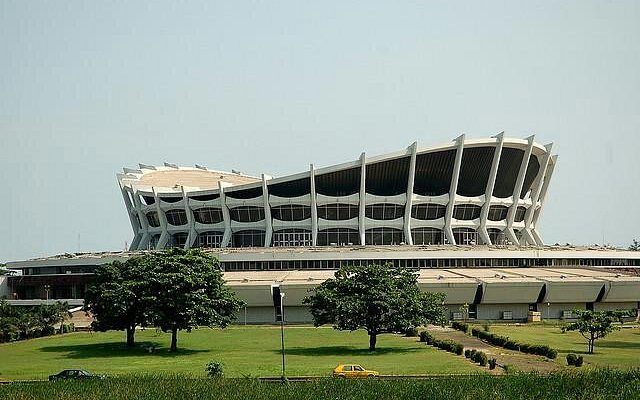By Annabel Bonney
Nigeria’s tourism potential isn’t a dream—it’s a goldmine waiting to be unlocked. But let’s be honest: potential means nothing without direction. While other nations are cashing in on culture, nature, and experience-based travel, Nigeria is still warming up. Why?
Because the people who should be moving the needle—government agencies, private players, local communities—are often focused on the wrong things, or worse, doing nothing at all.
So, what should we be doing right now to change the game?
Let’s break down the critical areas Nigerian tourism stakeholders must prioritize—immediately—if we’re serious about turning the industry into a powerhouse.
1. Embrace the diaspora market
There’s a huge market for cross immigration right now, people are relocating globally, African Americans are visiting Africa to find their ancestry. This is a billion dollar opportunity and goldmine waiting to be tapped. Ghana has spearheaded this move in the last 8 years and has since attracted over $10 billion to its coffers in investment
There are 55 million African Americans in the United States, target only 5-20% of that market and see the magic. (I have the framework for this, I am open to working with a select state governments to unlock this capability, kindly contact me if you’re interested)
2. Tourism framework & tourism map
Highlight tourism & heritage sites in each region. There’s something peculiar in all of them.
The north: the north has madinas, affluence, unique architectures, Rich culture and sand dunes we can use for safari
The west: has Rich culture that fascinates the world, 1 in every 5 person who take an ancestry swap has his roots in the Yoruba land. That’s your power!
Then you have spiritual tourism, Brazil is one of the countries with the biggest black settlement, because it’s a slave route and some slave ships docked there, 55.5% of brazil’s population is both black and mixed race. About 2-5% of Afro-brazillians worship orisha’s.
- Then there’s food tourism
- Before you come to nature there’s something to do and learn about in Lagos, Ondo, Ekiti, Osun etc.
The south: the south has the power of hospitality, Culture & nature. 3 very powerful combination.
The East: The East has affluence, very rich culture, industrialization, Food and nature
Sit with states to discuss tourism map & framework then Allow states to drive their individual campaigns based of the framework. (I can assist with this kindly contact me)
3. Strategic Branding and Marketing
Africa has stories the world wants to hear—but we must be the ones to tell them, western media has driven the narrative for decades now and we’ve suffered the consequences, time to change that
Stakeholders should:
- Invest in digital campaigns
- Highlight cultural richness, safety, and uniqueness
- Use local influencers and global platforms to spread the word
- Support influencers and businesses who are already doing he work, highlight them, give them incentives, grants, awards etc
Perception is reality. If people don’t see your country as desirable, they won’t come. Also inculcate this to the citizens to speak positively about the nation. Leaders should also represent the nation well home and abroad as they are the mirror everyone looks on
4. Policy and Institutional Support
Tourism without structure is chaos.
We need:
- Clear national and regional tourism strategies
- Dedicated ministries or agencies (strengthen and support the ones that already exist) tourism can’t survive independently without government parastatals, it goes hand in hand, one cannot function without the other. Tourism businesses and institutions will do the leg work and will drive the initiatives both agree on, while parastatals will influence and implement policies.
- Tax incentives for sustainable tourism investments
- Introduce grants to boost tourism and support tourism based businesses and this will encourage more people, everyone in the tourism space already love their job, it’s a fun job but it’s seasonal, so a little support and boost in low seasons will go a long way.
- Create or work with individuals who already have innovative tourism ideas, local, state or nationwide
Make it easy for people to invest, innovate, and scale.
5. Local Community Involvement
The people who live there should benefit from those who visit.
Stakeholders must ensure:
- Locals are included in planning, this will broaden their mindset and give them a sense of belonging. Sell them the idea it’s theirs and they will protect it as a ethic or national pride.
- Tourism revenue supports education, roads, and healthcare
- Cultural sites are protected—not commercialized.
Tourism should empower, not exploit.
6. Product Diversification
Not everyone wants to see animals. Not everyone likes museums. Give people options.
Ideas worth developing:
- Culinary tourism
- Festival and heritage circuits
- Eco and adventure tourism
- Religious and spiritual tourism
- Tech and innovation tourism
- Diaspora engagement summits
Let people experience Africa in more ways than one.
7. Sustainability and Environmental Stewardship
Without the land, there is no tourism. Protect it.
Stakeholders must:
- Regulate tourism development in fragile areas
- Promote eco-certifications and waste management
- Educate tourists and locals alike
Tourism must be future-proof.
8. Data and Research
Decisions without data are just guesses.
Tourism stakeholders need:
- Updated data on tourist arrivals, spending, and preferences
- Research collaborations with universities
- Feedback loops with real travelers
Use insights to refine strategy and correct course.
9. Security and Safety First
No tourist wants to vacation in fear. Safety isn’t optional—it’s foundational.
Stakeholders must prioritize:
- Stable regions free of political unrest
- Transparent and effective law enforcement
- Emergency response systems
Without safety, there’s no tourism. Period.
10. Infrastructure and Accessibility
It’s hard to sell paradise if people can’t reach it.
Stakeholders must look at:
- Airports and transport terminals
- Roads to rural and heritage destinations
- Reliable power, water, and internet access
Tourism cannot thrive on broken roads and blackouts.
11. Skilled Workforce Development
Tourism is a service industry. If your service is bad, your reputation dies.
There’s a need for:
- Hospitality training academies
- Tour guide certifications
- Customer service programs tailored to cultural sensitivity
- A collective database of tour operators who speak with one voice
Empower people. They are the face of your destination.
The Travel Africa Perspective
At Travel Africa, we’ve seen how tourism can shift narratives, build economies, and restore pride. But it won’t happen by chance. It takes vision. It takes the right focus.
That’s why we’re committed to:
- Offering well-curated trips with 70–90% coverage of key experiences
- Connecting diaspora and locals to the continent’s treasures
- Promoting responsible, Afrocentric tourism
- Changing wrong narratives and stereotypes about Africa
Tourism is not just a trip. It’s an opportunity—for growth, for dignity, and for unity.
Ready to build a better tourism story? Partner with Travel Africa.
📞 +234 916 4530 098


